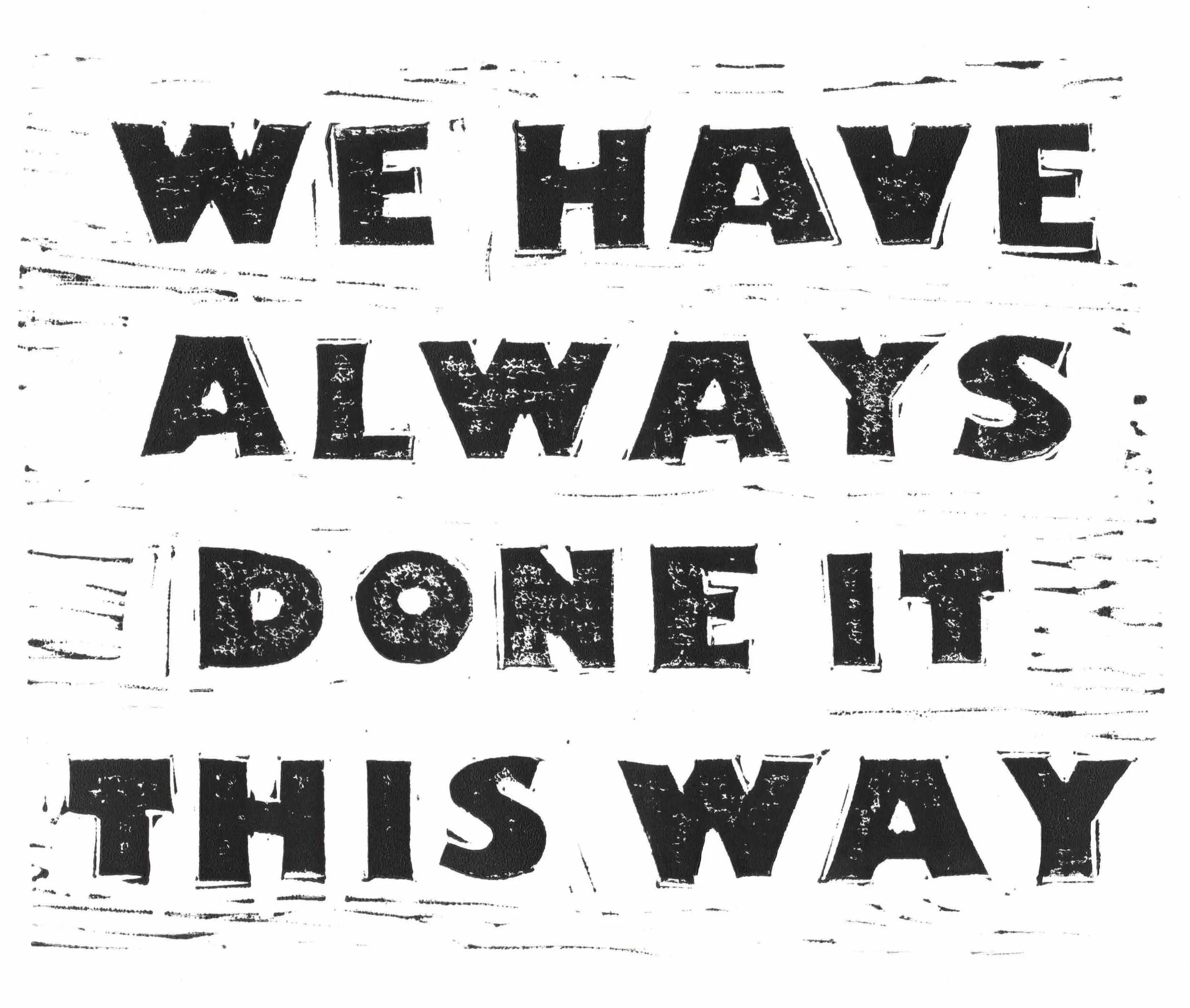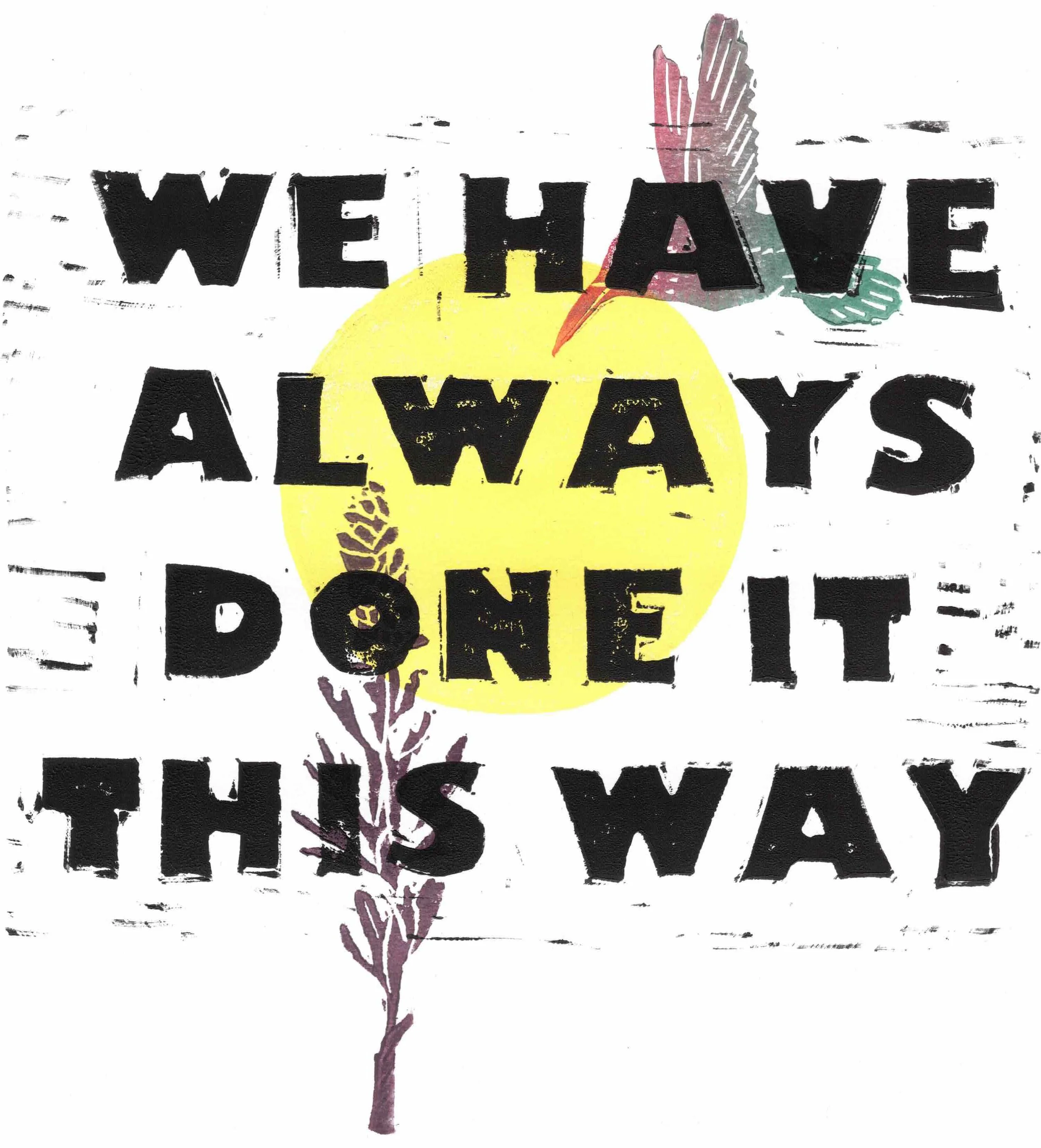“We’ve Always Done It This Way”
By Kimberly Miller
Another dead plant.
I’ve spent most of spring and summer this year trying to grow tomatoes, peppers, and herbs in our unfinished, tiny, rocky backyard.
I started out with small containers. The plants seemed happy enough in March and April, enjoying the warm afternoons. The weeks passed, and as the small plants grew and became rootbound, we transitioned each one tenderly to larger planters.
I knew enough about gardening to figure that the ground in Las Vegas would be unkind to my new hobby, but not enough to know how much work it would be just to keep them alive only to lose them to any host of reasons. As the pleasant Vegas spring weather grew to the unbearable summer heat, the plants began to show signs of wear.
First came the winds. Windy, dry, long sunny days didn't do the plants any favors. Then came the unrelenting afternoon sun. This was my first summer in a lifetime of Vegas residency that I haven’t seen rain.
The plants drooped. They yellowed. They begged for help.
I moved planters to different areas in the yards. I bought plant food. I started watering twice a day (what with working from home and nowhere to go and desperate for an activity to keep my toddler busy….) and then came the white flies. They infiltrated somehow, somewhere along the way and no matter how much watering or plant food or moving of pots could fend them off.
I treated them with herbicides. Neem oil, diatomaceous earth, blends of this and that concoction from the local nursery—but they kept dying.
I reached out to green thumb friends. They offered new plant location ideas, tracking sunlight, shaded areas, different kinds of plants, different kinds of soils, different kinds of pots. Not one of them said, “Keep doing what you’ve been doing, don’t make any changes.”
When a living thing is visibly suffering and we want to solve the problem, no one would ever expect a response of complacency.
And yet “We have always done it this way” are the words I keep hearing from folks in reaction to the suffering of so many of our nation's citizens.
Linocut on paper. Art/Kimberly Miller.
During this past year we’ve all been challenged out of our comfort zone. From small pedestrian changes in how we do our grocery shopping, to childcare, to healthcare, to mask-ware, to avoiding hugs and handshakes, to remote schooling. And the larger and more complicated learning and unlearning of our systemic bias and racism that has created a country divided.
“We’ve always done it this way,” ring the words from the mouths of many, “There has always been upset, there has always been injustice.”
I come back to the thought of my backyard plants. It would be cruel to look at them suffering, shrug, and sit back and let them fend for themselves against a hostile environment. And yet, this is what so many feel is the right thing to do when we’ve seen our citizens experiencing this struggle in the environment we’ve created.
What if instead of doing things the way we’ve always done, and letting a toxic environment dictate pain, what if we did something new? During this particular summer of gardening and reckoning, I’m reminded of the opening lines from Chapter 11 of Octavia Butler’s Parable of the Sower: “Any change may bear seeds of benefit. Seek them out.”
Linocut on paper.
I applied the logic to my quickly depleting garden this summer. Rather than allow the plants to continue to suffer, I decided to act boldly and with sweeping action. Every plant was repotted with fresh soil. Every pot was cleaned thoroughly with soap, bleach, and sunshine. Cedar chips were applied to keep the pests at bay. Shelves were purchased so plants could be protected from the harsh afternoon sun. Plants were given food and soil specific to their needs. Some plants were moved to entirely new locations. A few plants didn’t make the cut as they were too far gone rotten.
What would your city, state, and county look like if we were willing to take bold and sweeping action, to imagine change as something we can shape? Looking at the areas of the most pain and being willing to invest our time, resources, and care? If we were willing to sit down and really love on the places and people who have cried out for help and empathy?
It would be painful.
It would be expensive.
It would make people angry.
But could we imagine a future where we begin again, knowing what we know now?
We may have always done it this way, but we don’t have to keep doing it this way
Linocut on paper.
If you’re wondering, the backyard looks like these days, I’m happy to report the plants are blooming, lush, and thriving. The bees and hummingbirds visit us each morning, and for the first time in the five years of living in our place, we spend time there. Our small pandemic garden has taught me that we can create the world we want to live in, but we have to be willing to do the work.
Kimberly Miller is the founder of Sober in Vegas (soberinvegas.com, @soberinvegas) and is a writer, artist, parent, and outdoor enthusiast. She's been featured on KNPR's State of Nevada for her sobriety-related work, and her writing has been published in Desert Companion Magazine, She Explores, and Matador Travel. She uses her artwork to foster connection and in 2020 is donating her artwork in exchange for donations to community serving organizations.
Thank you for visiting Humanities Heart to Heart, a program of Nevada Humanities. Any views or opinions represented in posts or content on the Humanities Heart to Heart webpage are personal and belong solely to the author or contributor and do not represent those of Nevada Humanities, its staff, or any donor, partner, or affiliated organization, unless explicitly stated. At no time are these posts understood to promote particular political, religious, or ideological points of view; advocate for a particular program or social or political action; or support specific public policies or legislation on behalf of Nevada Humanities, its staff, any donor, partner, or affiliated organization. Omissions, errors, or mistakes are entirely unintentional. Nevada Humanities makes no representations as to the accuracy or completeness of any information on these posts or found by following any link embedded in these posts. Nevada Humanities reserves the right to alter, update, or remove content on the Humanities Heart to Heart webpage at any time.





